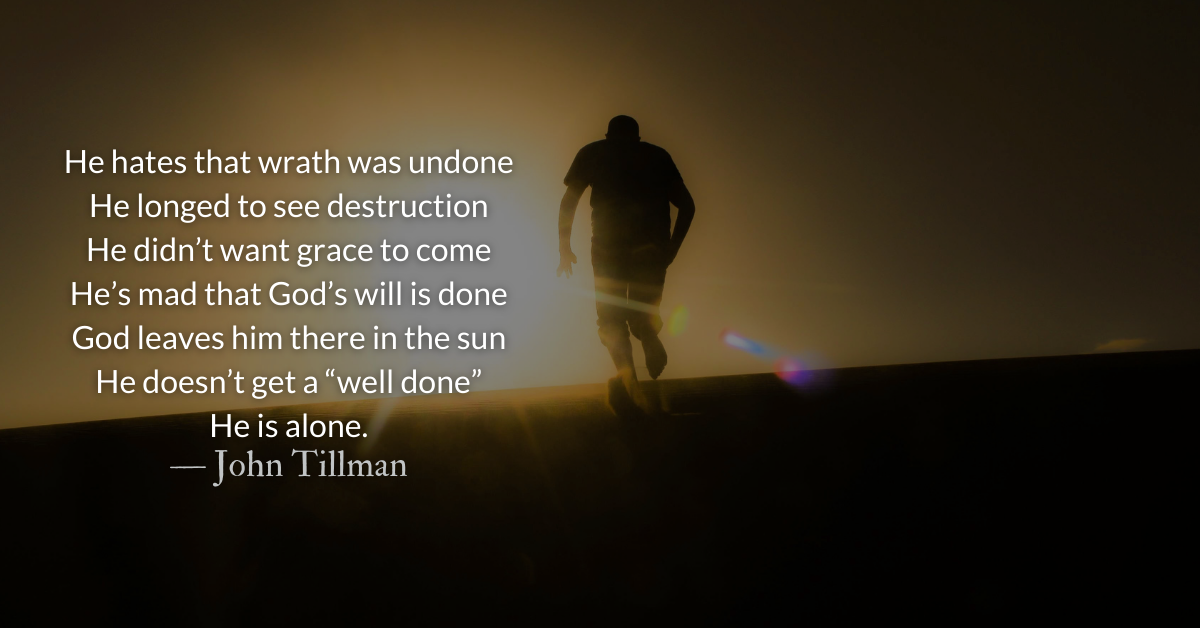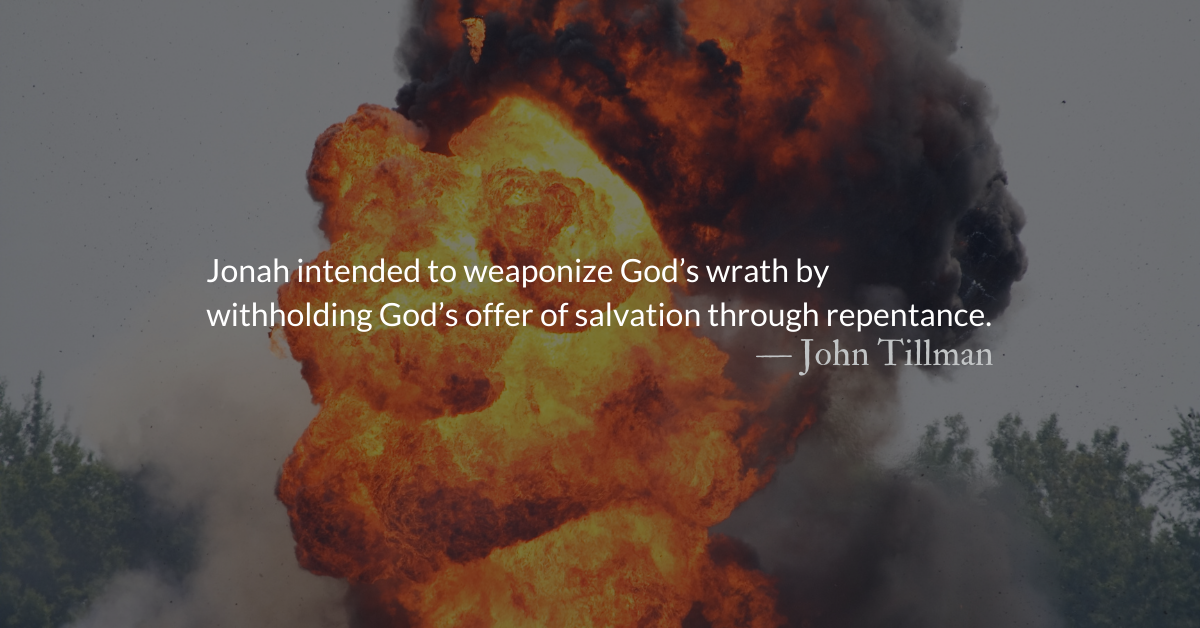Scripture Focus: Jonah 3.3-5a
3 Jonah obeyed the word of the Lord and went to Nineveh. Now Nineveh was a very large city; it took three days to go through it. 4 Jonah began by going a day’s journey into the city, proclaiming, “Forty more days and Nineveh will be overthrown.” 5 The Ninevites believed God…
Reflection: When Ninevites Believe
By John Tillman
Jonah didn’t want Nineveh to turn. He wanted them to burn. After preaching through the city for three days, Jonah climbed a hill and watched, hoping to glory in destruction, not mercy.
Jonah had practical reasons for fear, hatred, and despair. He feared their reaction. He hated them for their evil deeds. He despaired that they would ever change or repent.
But the Ninevites believed, and Jonah couldn’t believe it.
Unexpectedly, the people he feared violence from turned from violence to fear God. The people he had given up to wickedness gave up their wickedness and called on the Lord. The people he hoped would suffer for the suffering they caused experienced repentance and mercy.
I have Ninevites in my life and probably you do too. They are the people I’ve given up on. People whose reactions I fear. People who’ve harmed me. People I long to see fall under God’s justice.
Don’t forget that our enemies are loved by God. Jonah was sent to minister to those who had traumatized his country. Nineveh wasn’t just a random evil city. It was the capital of the Assyrian Empire that had been raiding Israel’s borders for decades. Jonah was unable to see them as God saw them, with compassion and sympathy.
Don’t expect God to deal with evil in the way we want him to. Jonah had prophesied against Assyria before. On that occasion, God used a wicked king of Israel to deliver his suffering people from the wicked Assyrians. (2 Kings 14.23-27) Jonah’s experience with Ninevites was as enemies on the battlefield, and he wanted God to treat them as such.
Jonah’s story tells us that it is a long, difficult journey to see those who’ve caused harm repent. There are storms. There are monsters. There are prayers from the depths. There is anger. There is suffering. There is questioning.
God goes with us through every bit of that journey. He lets us feel our feelings and rage our anger. He treats us with mercy we don’t deserve and then turns around and treats our enemies the same.
We don’t have to deny or hide our feelings about Ninevites. However, God holds out hope for Nineveh and, in some cases, may entrust us to take the gospel to them. May we be faithful.
God’s glory is best seen in his mercy. May we be able to celebrate when Ninevites believe.
Divine Hours Prayer: The Refrain for the Morning Lessons
God looks down from heaven upon us all, to see if there is any who is wise, if there is one who seeks after God. — Psalm 53.2
– From The Divine Hours: Prayers for Summertime by Phyllis Tickle.
Today’s Readings
Jonah 3 (Listen 1:31)
Psalm 78.1-37 (Listen 7:12)
Read more about The Maddest Prophet, The Saddest Prophet
Imagine a Ukrainian prophet commanded to take a message of mercy to Moscow and you might have an inkling of what Jonah felt like…
Read more about When God Has Mercy…Will We?
Jonah held his bitterness so deeply that the depths of the sea couldn’t wash it away and the sun couldn’t burn it away. How deeply will we hold on to ours?









